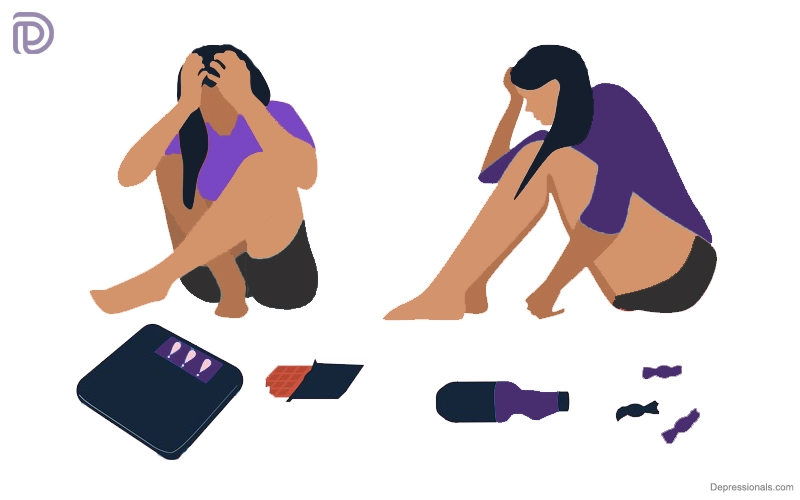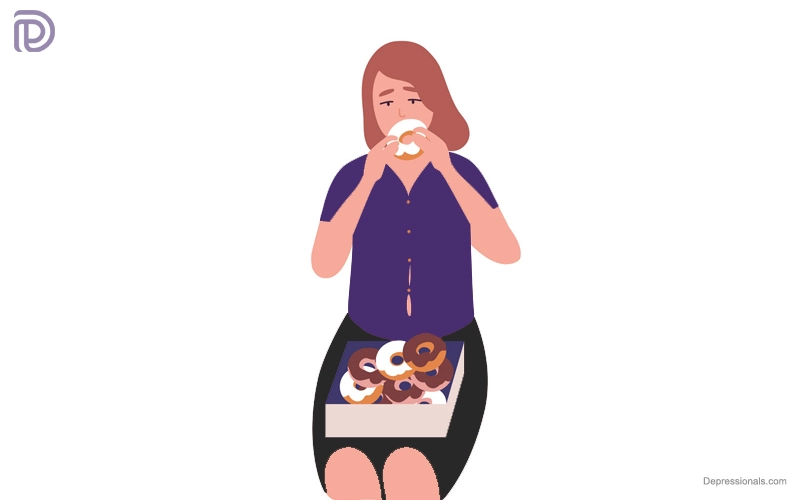Overview
Rumination disorder, also known as rumination syndrome, is a chronic disease that affects a small number of people. It has an impact on infants, children and adults.
Most meals are regurgitated by people with this condition. When recently consumed food rises into the esophagus, throat and mouth, it isn’t ejected from the mouth spontaneously or forcibly as it is with vomiting.
Symptoms
The major sign of this condition is the regurgitation of undigested food on a regular basis. Between half an hour and two hours after eating, regurgitation is common. This disease causes people to regurgitate virtually every day and after almost every meal.
Other signs and symptoms might include:
- Bad breath
- Weight loss
- Indigestion or stomach pains
- Tooth decay
- Dry mouth or lips
Both children and adults experience the same signs and symptoms of rumination syndrome. Regurgitated food is more likely to be vomited by adults. Food is more likely to be rechewed and reswallow by children.
Read: Pica in Pregnancy
Is rumination disorder an eating disorder?
Rumination disorder has been connected to various eating disorders, including bulimia nervosa, but the exact relationship between the two is unknown. The Diagnostic and Statistical Manual of Mental Disorders (DSM-V) lists the following diagnostic criteria for rumination disorder in its fifth edition:
- Food regurgitation on a regular basis for at least a month. Food that has been regurgitated can be spit out, re-swallowed or re-chewed.
- A medical illness, such as a gastrointestinal disease, is not the cause of regurgitation.
- Regurgitation isn’t necessarily associated with an eating condition like anorexia nervosa, binge eating disorder or bulimia nervosa.
- Symptoms of regurgitation that occur in conjunction with another intellectual or developmental problem are severe enough to necessitate medical attention.
Rumination disorder vs. reflux
Rumination disorder has symptoms that are distinct from acid reflux and GERD:
- Acid required to break down food in the stomach rises into the esophagus, causing acid reflux. This might result in a burning feeling in the chest as well as a sour taste in the mouth or throat.
- Food is regurgitated in acid reflux on occasion, but it feels sour or bitter, but regurgitated food in rumination syndrome does not.
- Acid reflux is more common at night, especially in adults. This is because laying down facilitates the passage of stomach contents up the esophagus. This disorder is a kind of ruminative condition that develops immediately after eating.
- Treatments for acid reflux and GERD do not help with the symptoms of rumination disorder.
Read: Avoidant Restrictive Food Intake Disorder
Causes
Researchers are still puzzled as to what causes rumination disorder.
Although regurgitation is considered to be accidental, the motion necessary to regurgitate is most likely taught. For example, someone suffering from rumination disorder may have unintentionally never learned how to rest their abdominal muscles. Regurgitation can be caused by contracting the diaphragm muscles.
To have a better understanding of this disease, more study is required.
Risk factors
Rumination disorder can affect anybody, although it is more frequent among babies and children with special needs.
Some sources claim that females are more prone to suffer from rumination problems, although further research is needed to back this up.
Other variables that may put children and adults at risk for the disorder include:
- Having a serious sickness
- Suffering from a mental disorder
- Undergoing psychiatric illness
- Having major surgery
- Going through a stressful situation
More study is needed to figure out how these factors interact to cause rumination disorder.
Read: What is Night Eating Syndrome
Diagnosis
Rumination disorder isn’t diagnosed with a test. Your doctor will examine you or your kid and ask you to discuss your symptoms and medical history. The more specific your responses are, the better.
The signs and symptoms you mention are used to make a diagnosis. Rumination disorder is characterized by the absence of additional symptoms such as genuine vomiting, an acid sensation, or a bad taste in the mouth or throat.
Other medical problems may be ruled out with the use of certain tests. For example, blood tests and imaging investigations might be performed to rule out gastrointestinal problems. Other symptoms of a disease, such as dehydration or nutritional deficits, may be examined by your doctor.
Rumination disorder is frequently misdiagnosed and confused with other illnesses. More awareness is required to assist persons suffering from the illness and doctors in identifying signs.
Read: 15 Simple Tips to Stop Binge Eating
Treatment
Rumination disorder is treated the same way in children and adults. The goal of treatment is to alter the learned habit that causes regurgitation. There are a variety of techniques that may be employed. Your doctor will customize the treatment plan for you based on your age and ability.
Diaphragmatic breathing exercise is the easiest and best treatment for rumination disorder in children and adults. It includes learning to breathe deeply while also relaxing the diaphragm. When the diaphragm is relaxed, regurgitation is impossible.
During and after meals, use diaphragmatic breathing methods. The disorder should eventually go away.
Other options for treating rumination disorder in adults include:
- Posture changes before, during and after a meal
- Eliminating all sources of distraction during mealtime
- Minimizing distractions and stress at mealtimes
- Psychotherapy
For the time being, there is no treatment for rumination disorder.
Read: How to Stop Late Night Eating
Complications
The tube between the stomach and mouth (esophagus) can become damaged if rumination syndrome goes untreated.
There are other symptoms associated with rumination syndrome, including:
- Weight loss that is unhealthy
- Malnutrition
- Dental erosion
- Bad breath
- Embarrassment
- Social isolation
Prevention
If you learn more effective coping strategies for stressful situations, you may be able to reduce your risks of rumination syndrome.
Outlook
Rumination disorder is a complex and time-consuming condition to diagnose. The prognosis is favorable after a diagnosis has been made. The majority of persons with rumination syndrome respond well to treatment. It can even go away on its own in certain circumstances.






Excellent goods from you, man. I have bear in mind your stuff previoous
to and you’re just extremely wonderful. I actually like
what you have obtained right here, I certainly like what you are saying and the best way
in which you say it. You’re making it enjoyable and you
continue to take care of it to keep it wise. I can’t wait to
read far more from you. This is actually a great web site.
Woah! I’m really loving the template/theme of this blog. It’s simple, yet effective. A lot of times it’s tough to get that “perfect balance” between usability and visual appearance. I must say you have done a very good job with this. In addition, the blog loads super quick for me on Firefox. Excellent Blog!
I don’t commonly comment but I gotta say regards for the post on this amazing one : D.
This is very informative.
Have you ever thought about adding a little bit more than just your articles? I mean, what you say is important and everything. But imagine if you added some great graphics or videos to give your posts more, “pop”! Your content is excellent but with images and video clips, this blog could undeniably be one of the very best in its field. Very good blog!
Thanks very much, this was very helpful. I’ll recommend it to my friends.
Excellent writeup.